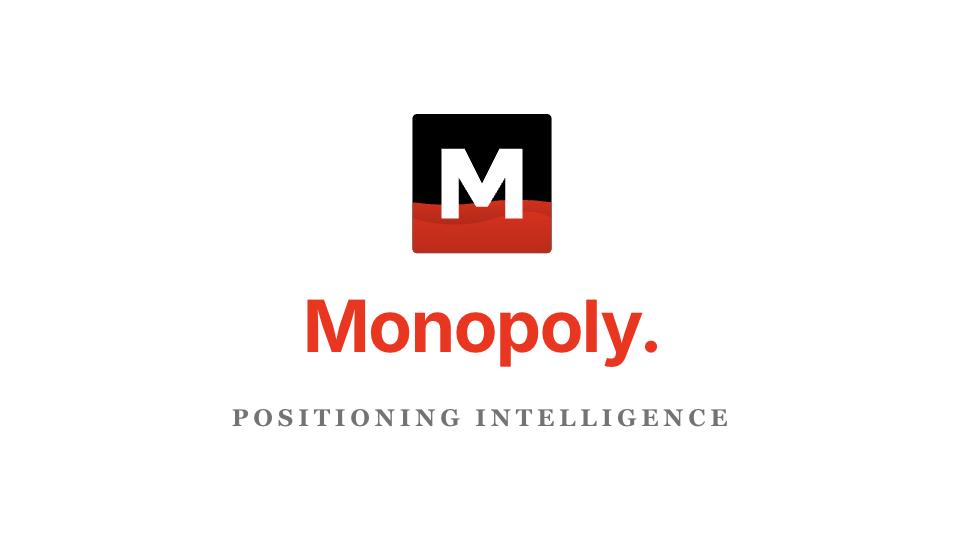Why This Analysis Exists
Kyle Poyar is doing great work. His newsletter, Growth Unhinged, consistently delivers sharp insights on go-to-market strategy, pricing, and growth mechanics. His decision to go all-in on the newsletter is admirable. It takes conviction to bet on your own platform and point of view.
This analysis isn’t a critique of Kyle. It’s an attempt to add depth and nuance to the conversation he started.
Kyle documented how Fyxer grew from $1M to $17M ARR in eight months. He reverse-engineered their tactics, identified patterns, and extracted what he calls a “playbook.” That’s valuable work. Growth practitioners need these case studies.
But there’s a layer beneath tactics that rarely gets examined: positioning.
Kyle never mentions it. Most growth analysis doesn’t. This isn’t a failure. It’s a gap in how we collectively think about business success.
So this piece asks the questions Kyle didn’t:
- What does Fyxer actually own in customers’ minds?
- Why do people choose them beyond “the product works”?
- What makes this defensible when competition arrives?
- What concept could they claim that would turn tactical success into strategic dominance?
This isn’t about proving Kyle wrong. It’s about going deeper into what makes companies not just grow, but last.
Kyle analyzed the mechanics. Let’s examine the foundation.
What Kyle Actually Analyzed
Kyle never mentions “positioning” once.
He analyzes:
- Growth tactics (influencer marketing, performance ads, onboarding)
- Execution metrics ($1M to $17M ARR in 8 months)
- Distribution strategy (consumer to enterprise bridge)
- A “playbook,” he thinks, is repeatable
His thesis: Fyxer represents a new pattern: “product-led growth re-engineered for the AI era.”
What he documents:
- Simple product for everyday people
- Influencer outreach for traction
- Aggressive performance marketing
- Enterprise expansion focus
- Continuous AI improvement
This is solid tactical analysis. Kyle’s good at growth mechanics.
What he never asks:
“What does Fyxer own in customers’ minds?”
The Blindness
This article perfectly demonstrates how business analysis typically works:
Standard approach:
- Reverse-engineer what companies did (tactics)
- Measure what happened (growth numbers)
- Extract a “playbook” (repeatable steps)
- Assume execution = strategy
What’s missing:
- What concept does this company own?
- Why do customers choose them over alternatives?
- What mental territory are they claiming?
- What makes this defensible beyond execution?
Kyle treats positioning as invisible. Or irrelevant. Or assumed.
But here’s the problem: You can copy tactics. You can’t copy mental territory.
What Kyle Gets Right
Fair is fair. Kyle observes real patterns:
AI economics shift: Consumer ARPU potential is 10x higher with AI than pre-AI software
Work vs. personal emails: Business users are worth 10x personal users (real signal in their data)
Distribution asymmetry: Consumer channels move faster than enterprise sales cycles
Expansion mechanics: Single users can multiply into team/enterprise deals
Reactivation opportunity: AI improvements let you bring back users who tried too early
Execution excellence: Fyxer genuinely executes well. 200+ ad variations per sprint, 4 growth engineers, rigorous testing
These observations are valuable. This is what Kyle does well. Documenting how companies grow.
What’s Actually Happening
Fyxer is riding three waves:
- AI adoption curiosity (everyone is trying AI tools)
- Email pain (real, unsolved problem)
- Execution excellence (genuinely good at tactics)
But here’s what Kyle misses: None of this tells us what Fyxer owns.
They’re solving a problem (email overload) without claiming a concept.
The test:
- If Gmail adds “Gmail AI Assistant” with identical features tomorrow, will customers stay?
- If Microsoft embeds equivalent AI in Outlook, what’s Fyxer’s defence?
- If Superhuman adds AI capabilities, what differentiates Fyxer?
Right now, the answer is: “Our product works well.” That’s not positioning. That’s product-market fit. Product-market fit gets you to $17M. Positioning gets you to category ownership.
First, Second, and Third Order Effects
First Order (What’s visible now):
- Fast user acquisition through performance marketing
- Strong work email conversion (10:1 vs personal)
- Referral-driven team expansion
- $17M ARR in 8 months
- $30M Series B funding
Second Order (What’s coming):
- Positioning vacuum becomes a liability: “AI email assistant” becomes a crowded category
- Feature parity arrives: Google, Microsoft, Superhuman add equivalent capabilities
- Price compression: Without concept ownership, competition is on features/price
- Growth plateau: AI curiosity fades, requires deeper reasons to choose Fyxer
- Enterprise commoditization: Large customers see them as “another productivity tool”
- Identity crisis: Team doesn’t know what they’re becoming beyond “email AI”
Third Order (Long game):
- Acquisition target, not category king: Most likely exit is acquisition by incumbent
- Playbook commoditization: Everyone copies tactics, making them worthless
- False lesson learned: The market thinks “consumer to enterprise” is the strategy
- Capital misallocation: Founders chase the tactical playbook without a foundation
- Category capture: Whoever owns the concept (not features) dominates
Common Misattributions
Kyle (and most growth analysts) conflate:
❌ Fast growth → Strong positioning
Reality: Growth can be explosive during technology adoption curves regardless of positioning
❌ High conversion → Good positioning
Reality: Conversion measures funnel efficiency, not mental territory ownership
❌ Execution → Strategy
Reality: Execution proves positioning; it doesn’t create it
❌ Enterprise expansion → Defensibility
Reality: Enterprise customers buy working products. Doesn’t mean you own a concept.
❌ “Consumer to enterprise” → A position
Reality: That’s a distribution strategy, not mental territory
❌ Product improvements → Positioning strength
Reality: Better AI makes a better product. Doesn’t change what you mean to customers.
The Missing Question
Kyle should have asked Archie:
“What noun do you want Fyxer to own in customers’ minds?”
Not “email assistant.” Not “AI productivity.” Not “time saving.”
What singular concept should people associate exclusively with Fyxer?
This question was never asked. Or answered.
Two Possible Positions for Fyxer
If I were advising Fyxer, here are two concepts they could credibly own:
Option 1: Sovereignty
The concept: Personal sovereignty over time and communication.
Not: “We save you time”
Instead: “You control your time. Email doesn’t.”
Why this works:
- Distinctive: No one owns sovereignty in email/productivity space
- Resonant: Connects to fundamental human desire for autonomy
- Credible: Their product literally returns control from inbox chaos
- Defensible: Entire business can architect around this concept
What changes if Fyxer owns Sovereignty:
Product decisions:
- Add “Sovereignty Mode,” complete email isolation, AI handles all
- Remove features that increase dependency on email
- Measure success by “hours of uninterrupted time protected”
Pricing:
- Not per-user pricing
- Price on “hours of sovereignty protected” (usage-based on time reclaimed)
Marketing:
- Stop talking about productivity
- Start talking about autonomy vs. servitude to inbox
- Campaign: “Who owns your day? You should.”
Partnerships:
- Partner with focus/mindfulness companies (Calm, Headspace)
- Avoid productivity tool integrations that undermine sovereignty message
Culture:
- Hire people who rebel against always-on culture
- Internal policy: No email after 6pm (proving sovereignty)
- Reject enterprise deals that treat Fyxer as “just another tool”
Business model architecture:
- Revenue tied to autonomy protected (hours saved)
- Cost structure prioritizes defending attention
- Innovation pipeline: only features that increase sovereignty
The narrative:
- Current reality: Email was supposed to make us accessible. Instead it enslaved us.
- The twist: The problem isn’t volume. It’s loss of sovereignty over our own time.
- Cost of inaction: Every professional is living on email’s schedule, not their own.
- Resolution: Fyxer doesn’t manage your email. Fyxer returns your sovereignty.
Option 2: Clarity
The concept: Clarity in communication and priorities.
Not: “We organize your inbox”
Instead: “We cut through noise to what matters.”
Why this works:
- Distinctive: Clarity is unclaimed in email space (everyone claims “productivity”)
- Resonant: Everyone drowning in email wants clarity
- Credible: AI’s core function is to signal from noise
- Defensible: Can build an entire system around clarity as a principle
What changes if Fyxer owns Clarity:
Product decisions:
- Priority: Not “faster email processing” but “clearer understanding of what matters”
- Add “Clarity Score,” measure email importance, not just volume
- Remove features that add complexity
Pricing:
- Could price on “clarity delivered” (important emails identified vs. noise filtered)
Marketing:
- Stop talking about time saved
- Start talking about decision quality and focus
- Campaign: “500 emails. 5 that matter. One that sees the difference.”
Partnerships:
- Partner with decision-making tools and frameworks
- Integrate with strategic planning, not just task management
Culture:
- Hire for intellectual rigour and discernment
- Internal practice: “Clarity meetings,” strip every discussion to essentials
- Decision filter: Does this add clarity or complexity?
Business model architecture:
- Revenue tied to clarity delivered (signal identified)
- Cost structure invests in better discernment algorithms
- Innovation: Only features that increase clarity
The narrative:
- Current reality: More email than ever, less understanding of what matters.
- The twist: The problem isn’t information overload. It’s a clarity deficit.
- Cost of inaction: Professionals are busy but not effective. Responding but not deciding.
- Resolution: Fyxer doesn’t organize email. Fyxer delivers clarity.
Comparing the Two Options
| Criterion | Sovereignty | Clarity |
|---|---|---|
| Distinctiveness | Higher (no one owns this) | Moderate (less unique but unclaimed) |
| Emotional resonance | Very high (autonomy is fundamental) | High (everyone wants clarity) |
| Credibility | Strong (product literally returns control) | Strong (AI filters signal from noise) |
| Expansibility | Limited (specific to communication/time) | Higher (clarity applies broadly) |
| Cultural fit | Requires rebellion mindset | Requires intellectual rigor |
| Risk | More radical, could alienate some | Safer, more acceptable |
My recommendation: Sovereignty
Why? Because it’s more distinctive, more emotionally powerful, and harder to copy. Clarity is good, but Sovereignty is ownable. Plus, Sovereignty naturally includes clarity (you need clarity to have sovereignty), but clarity doesn’t necessarily include sovereignty.
What This Reveals About Business Analysis
Kyle’s article is a perfect case study in how most people analyze companies:
They document:
- What companies did (tactics)
- What happened (results)
- How to replicate (playbook)
They ignore:
- What companies mean (positioning)
- What they own (mental territory)
- Why customers choose them (beyond features)
This isn’t Kyle’s fault. This is how the industry thinks.
Growth marketing teaches:
- Acquisition channels
- Conversion optimization
- Expansion strategies
- Retention mechanics
It doesn’t teach:
- What concept to own
- How to claim mental territory
- Why positioning drives everything else
So Kyle analyzes Fyxer’s growth without ever asking what Fyxer means to customers. And Fyxer (probably) executes brilliantly without ever choosing what they want to own. Both are making the same mistake: confusing execution with strategy.
The Warning
Fyxer can continue optimizing funnels, scaling ads, and expanding to enterprise.
They’ll grow for a while.
But without claiming a concept, they’re building a product that will either:
- Get copied by competitors with equivalent features
- Get absorbed by incumbents who add AI to existing products
- Get outpositioned by someone who owns Sovereignty or Clarity
The test: If Gmail announces “Gmail AI Assistant” with identical features tomorrow, will customers stay?
Without positioning, the answer is “maybe.”
With Sovereignty or Clarity owned, the answer is “absolutely.”
That’s the difference between renting growth and owning a category.
Finally.
Kyle wrote a solid tactical case study. Fyxer executes growth mechanics well.
But neither Kyle nor Fyxer (apparently) asked the foundational question:
What noun do we own?
Without that answer, everything else is execution without strategy. Tactics without a position. Growth without defensibility.
Fyxer could own Sovereignty. Or Clarity.
Right now, they own nothing.
That’s the real story Kyle missed.
Uncover your position

Before you hire a messaging consultant to wordsmith your homepage, or an agency to “refresh your brand,” or someone to fix what they’ll call positioning (but is really just tactical framing), try this first.
The CEO Clarity Starter Kit
It does exactly what we just read. It helps you find and own your noun.
What you do:
- Run the Position Audit (reveals what noun you might already own without knowing it)
- Complete the 8-Question Advisor (the same questions that would surface “Command” for Cluely)
- Feed the output into ClarityGPT (included)
What you get:
- Your noun. The concept you can actually own, not just claim
- A 4-Level Positioning Canvas showing how to move from saying it to OWNING it
- ClarityGPT translates your position into landing pages, offers, and LinkedIn profiles (written in your buyer’s voice, not consultant-speak)
- A 30-day positioning course so you can apply this method without me
Time required: About an hour (less time than reading three more case studies about tactics that won’t work without position)
Who’s used it: 200+ CEOs and founders who were tired of pushing uphill
Investment: $249 USD
Most realize they don’t need the consultant or agency after this. Or they need far less than they thought. Because once you know your noun (your position), the tactics become obvious. The distribution chooses itself. The customers explain you better than you explain yourself.
And yes, if you buy the kit, it nudges me closer to that Porsche in the photo. Thanks in advance for supporting excellent positioning and questionable life choices.

Stop competing on features. Start owning concepts.




Leave a Reply
You must be logged in to post a comment.